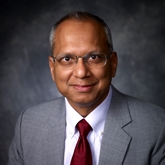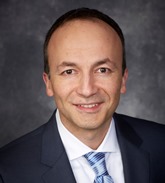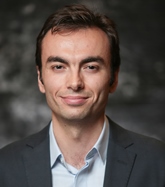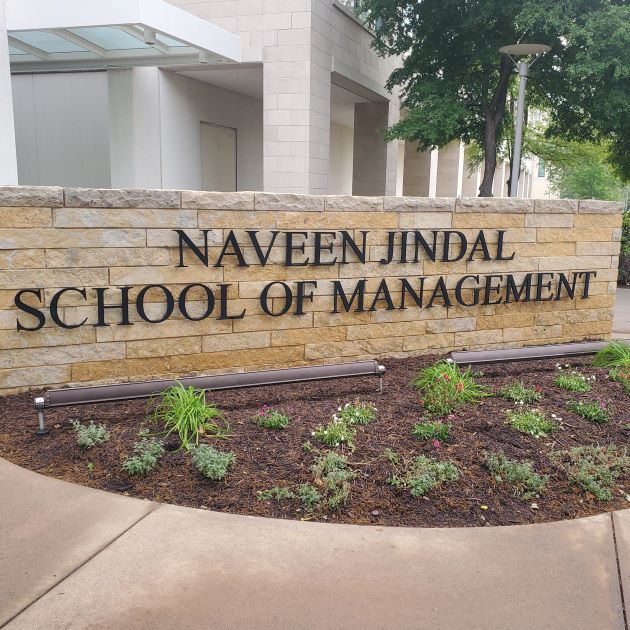
Students enrolled in the Naveen Jindal School of Management’s PhD Programs recently competed in the annual Three-Minute Dissertation Competition. This opportunity is designed to hone the students’ communications skills and make the complex research they do more accessible to prospective employers and general audiences.
Modeled in part on the Three Minute Thesis (3MT®), an academic research communication competition developed by The University of Queensland, Australia, the competition forces scholars to think about ways to distill years of research in such a way as to make it readily understood by a general audience.
For PhD candidates “to be able to get into the minds of the people who they want to impress, they need to be able to communicate the essence of their research in the classic elevator speech,” said Dr. Sumit Sarkar, Charles and Nancy Davidson Chair, a professor in the Information Systems Area at the Jindal School and director of the school’s PhD programs. An elevator speech — or pitch — distills a message into a clear, concise summary that is easily understood and quickly delivered.
Readying Candidates for the Job Market
Sarkar, who began the Three-Minute Dissertation Competition four years ago, said one of his primary goals is to produce graduates who are sought after in academia and industry.
“This goes back to something we’ve been doing for a long time — just not in this format,” he said. Before “our graduates go for jobs in academia, they usually go to conferences. If they make a good impression there, then they get a campus visit and go through the interview process.”
In such a hyper-competitive environment — at the Jindal School, faculty positions usually attract 50 to 100 applicants — being able to stand out is critical, Sarkar said. “The person who is interviewing the candidate may be in the same area in general, but the specifics of their research can be very different from what the candidate is working on.”
This emphasis on making sure that JSOM PhD graduates have their elevator speech down pat — and are therefore more appealing to potential employers — is what prompted Sarkar to develop the competition.
He began requiring that students be recorded doing their elevator speeches in videos that are roughly three minutes long. This year, with social-distancing requirements in place, the students had to figure out a way to record themselves.
“Once the students see themselves in this video, it makes them realize how they are coming across,” he said. “If they don’t like what they see, then they can make changes to refine their presentations.”
Incentivizing the Process
A few years ago, Dr. Hasan Pirkul, Caruth Chair and dean of the Jindal School, suggested to Sarkar that he would be happy to provide funding to incentivize students to engage in this process.
Funds in hand, Sarkar and his team turned the exercise into a competition in 2018.
Every student who is close to graduating — usually within a year or two — is required to submit an entry. Sarkar encourages other students who are not as far along but want to participate to do so.
Each year 15 to 20 students submit a video. A panel of undergraduate honors students watches the videos and provides feedback to Sarkar and his team who, in turn, summarize that feedback and give it to each of JSOM’s PhD area coordinators. The coordinators select one finalist from their respective areas. Sarkar and his team then gather all the feedback and send it to the PhD Committee (a school-wide committee comprised of faculty members who are responsible for the overall governance of the JSOM PhD programs), which selects the first-, second-, and third-place winners.
This year, the winners were:

1st Place: Inki Sul (Operations Management)
2nd Place: David Heidtman (Finance)
3rd Place: Gurvinder Sandhu (Accounting)
They were awarded cash prizes of $500, $300 and $200, respectively.
Sul said that going through the process will benefit him once he becomes a full-time researcher, and you can view his winning video here:
“It’s a great idea,” Sul said about the competition. “It helps us wrap our heads around ourselves and think about what we’ve been doing. In the end, this research needs to be communicated to the mass crowd — that’s the goal — and I think it was a great opportunity for me personally to think about how my research should be communicated, what the interesting points are and how it relates to the world in general.”
Added Benefits


Although the primary goal of the competition is to make the Jindal School’s PhD graduates more employable, Sarkar said, an added benefit is that their research is distilled and presented in such a way as to make it more accessible to the public.
“One of the challenges that I think all PhD students face — I faced it when I was a PhD student — is that we get so caught up in a specific research problem that we are digging deeper and deeper into,” he said, “that we lose sight of the big picture when we’re talking to someone who is not familiar with it at all. How do we at least give them the context of what we are doing before we get into the fantastic details? That is the gap that we want our students to overcome.”
Two faculty members in the Operations Management Area of the Jindal School — Dr. Özalp Özer, George and Fonsa Brody Professor, and Dr. A. Serdar Simsek, an assistant professor — are Sul’s dissertation advisers. Along with developing Sul’s research skills, part of their responsibility is to groom him professionally. Özer said that Sul would surely benefit from this experience when he is in the academic job market presenting his dissertation research.
“I’m very pleased to see that Inki has won this award,” Özer said. “It is gratifying to see that the effort Dr. Simsek and I put into mentoring him about the importance of written and verbal communication of research is paying off.”





